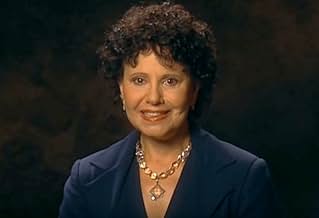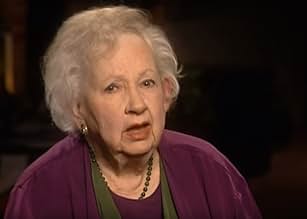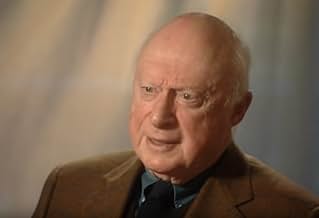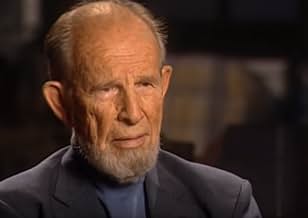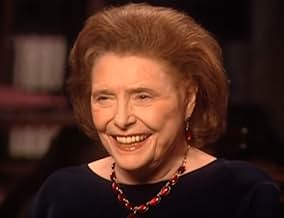This documentary, aired on the Turner Classic Movies (TCM) cable network, looks at the life and career of John Garfield, whose career was cut short when he died at age 39. His difficult chil... Read allThis documentary, aired on the Turner Classic Movies (TCM) cable network, looks at the life and career of John Garfield, whose career was cut short when he died at age 39. His difficult childhood in the rough neighborhoods of New York City provided the perfect background for the ... Read allThis documentary, aired on the Turner Classic Movies (TCM) cable network, looks at the life and career of John Garfield, whose career was cut short when he died at age 39. His difficult childhood in the rough neighborhoods of New York City provided the perfect background for the tough-guy roles he would play on both stage and screen.
- Director
- Writers
- All cast & crew
- Production, box office & more at IMDbPro
Featured reviews
An Adoring Mythological Biography of John Garfield
The fact is that actors are not necessarily the best judge of the materials they should be in. The fact is that the Warners did necessarily misuse its actors. Proof that Warners was not out of touch is that it managed to make a wealth of memorable classic films in the 1930's and 1940's, starring these so-called misused actors. If one accepts the story line, then one must presume that the studio made these films by accident.
Often the point of using this trite story line in a biography is to make the actor a proletarian victim of the more powerful capitalistic forces in the studio and therefore, someone who does not have control over his destiny, or his fate, or who is not responsible for the decisions that he or she makes. That would seem to be the case in this simplified love poem to Julie Garfield.
In this documentary, one does not get the real story of why Garfield lost his prize role in Golden Boy to Luther Alder, but instead a sugar coated one. The real story is much more interesting and pivotal in the career of Garfield, and had it been told would have made an much more interesting and meaningful biography. It would, however, have exposed much of what was covered-up in this documentary, and have undermined the final verdict of it, namely, John Garfield was a victim.
The outright deceits of this documentary are too numerous to comment upon here, especially those of James Cromwell, who appears as a snotty self-appointed expert on a subject that is obviously miles over his head, nor does it bring up the fact that John Garfield perjured himself when he testified before the House Committee, and that is why he found himself in the deep muddy. His egregious perjuries had little to do with his alleged refusal to name names. Of course, these factoids would undermine the mythologizing that this documentary sets out to achieve.
my favorite actor finally getting recognition
A Daughter's View
Was he a great actor? He was always quite good, but he had his limitations. He was generally better in film noir than the great outdoors and often stronger in supporting roles than in leads. The film makes an argument that Warner's frequently misused him, but he was hardly unique in this regard. In any case, he did some of his best work there (e.g.,"Pride of the Marines") before free lancing in the late 40s.
Was he an activist? Yes, though not any more so than a number of people and probably less than some. His roots may have been in the Group Theater, but even there the real emphasis was on acting, not activism. The film doesn't spend too much time on this side of his life, which is just as well, though the leftist actors who are interviewed clearly warm to this theme and to the concept of his martyrdom.
For all the talk about HUAC and blacklisting (Joe Bernard states flatly "the Committee killed him"), Garfield's acting career was at most only half dead when he died at 39. He'd just been on Broadway in "Golden Boy" and surely could have made a good living on the stage, which was always his first love.
As for his film career, that was probably on the skids anyway by 1952. Noir and social realism were played out. Hollywood was entering a white bread era and Garfield's urban/ethnic grittiness didn't fit into a landscape dominated by Westerns, Biblical epics, Technicolor musicals, and romantic comedies. Had he lived he surely would have made a big comeback in the 60s and 70s. It's not hard to imagine him as Sol Nazerman or Hyman Roth, but it wasn't in the cards.
In his last film, titled ironically "He Ran All the Way", he was allowed very little running. Rheumatic fever in the early 30s had damaged his heart and there may have been congenital problems as well (his son died of a heart attack at 41). Very likely he had been dying for years.
Recommended primarily for Garfield's fans or for those completely unacquainted with his work. Others will find it little more than routine.
Worthy of retelling
interesting documentary about a Hollywood legend
The documentary covers Garfield's early days as Jacob Garfinkle, whom his family called Julie and who later billed himself as Jules, and how at a school for problem kids his dramatic and boxing skills were honed with the help of the head of the school. It goes into his early theater work, and how he took a contract at Warners after losing out to Luther Adler as "Golden Boy," a play specifically written for him by Clifford Odets. He was evidently considered too green for the role by the Group Theater and actually didn't play the lead until 1952, when his Hollywood career was over.
Garfield's star rose quickly - he was a handsome tough guy who gave honest performances and was rewarded with some major films, including "The Postman Always Rings Twice," "Gentlemen's Agreement," and "Humoresque." And his star fell just as fast when the Communist witch hunt began. A liberal in his views, and one who consorted with writers, actors, and directors deemed questionable, his major sin was going to Yugoslavia during the war. He was unable to enlist because of a bad heart, and instead helped to entertain the troops. (Lee Grant ended up on the blacklist, by the way, because she attended the funeral of someone who was blacklisted.) When he was subpoenaed for the hearings and refused to name names, the last nail went into his coffin. His last film was a B picture, "He Ran All the Way."
I can't agree totally with one of the posters, who claims that Garfield would have been washed up anyway. Yes, it's true, the '50s were filled with costume dramas and musicals; they were also filled with angry young men for whom he was the prototype - James Dean, Marlon Brando, Rod Steiger, and Paul Newman, to name a few - and surely Garfield could have successfully continued to work in and produce movies. The stage would have gotten him through the harder-to-cast middle-aged years until "The Godfather," and there's no doubt his later career as a character actor would have been very rich. But there's no use speculating.
If you don't know much about Garfield - and I didn't - you will find this a fascinating look at his career and life. But watch a little more closely, and you'll realize also that he was undoubtedly a lot more complicated than this documentary shows.
Did you know
- TriviaIncluded in Warner Home Video's 2004 DVD release of The Postman Always Rings Twice (1946).
- GoofsIn her opening narration of this documentary, Julie Garfield refers to "Senator Joseph McCarthy and his House Un-American Activities Committee". As a senator (and someone who had never been a member of the House of Representatives), McCarthy did not serve and could never have served on HUAC. Indeed, Ms. Garfield's very words make no sense, as senators cannot be members of House committees (or vice versa). Moreover, McCarthy had nothing whatsoever to do with the investigations into alleged Communist influence in Hollywood or the subsequent blacklist. McCarthy, in the Senate, concerned himself almost entirely with alleged subversives in government and related institutions, but he never got involved with Hollywood or the entertainment industry, which was the exclusive preserve of HUAC - 'though McCarthy certainly approved of what that committee was doing.
- Crazy creditsAs the credits roll on the right side of the screen, the left side shows unidentified film clips from Garfield's movies while the interviewees make additional comments. The final frame shows Garfield's star on the Hollywood Walk of Fame.
- ConnectionsFeatures Footlight Parade (1933)
Details
- Runtime
- 58m
- Color
- Sound mix
- Aspect ratio
- 1.33 : 1

